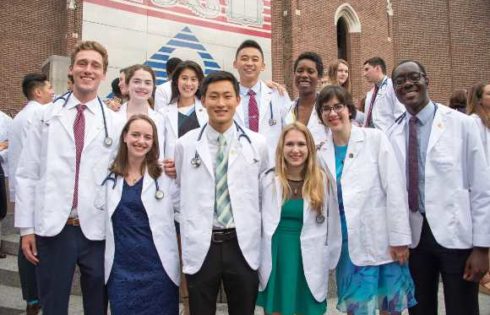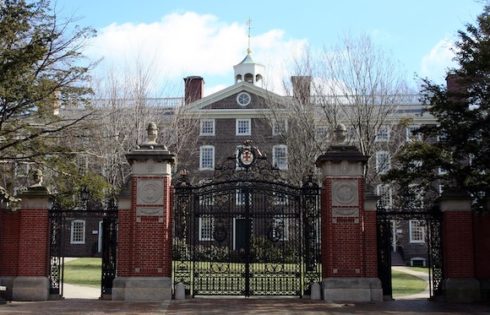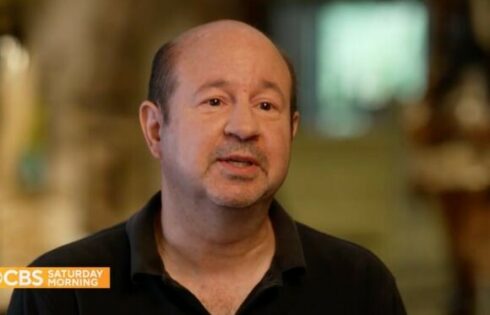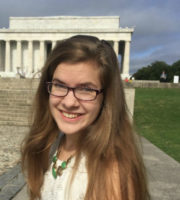
No one has seen the ‘complete’ medical exam – not even the judges
“John was denied access to critical evidence; denied the opportunity to adequately cross-examine witnesses; and denied the opportunity to present evidence in his defense. UCSB denied John a fair hearing.”
A California appeals court bluntly told the University of California-Santa Barbara that it withheld “even a semblance of due process” from a sexual-misconduct proceeding that ended with “John Doe” suspended for two years.
It reversed a trial court’s ruling in favor of the university and ordered the lower court to grant Doe’s petition to rescind his suspension.
The appeals judges strongly suggested they would rule against UCSB at oral argument in July, because of its consistent attempts to kneecap Doe’s defense.
The university initially hid evidence from Doe that “Jane Roe” may have hallucinated the alleged assault because of medication she was taking. When Doe finally learned the name of the drug (below), the university refused to let him introduce evidence of its side effects when combined with alcohol.
The university’s general counsel also acted with complete freedom in the proceeding while Doe’s counsel was ordered silent.
One of the appeals judges, Steven Perrin, said during oral argument that he was “stunned” the university had required the freshman Doe to act as “a lawyer in a major sexual assault case.”

Accuser woke up ‘confused, disoriented, and mumbling in foreign languages’
The judges made clear their displeasure with the university’s failure to follow its own rules for student conduct proceedings, leaving them an incomplete record to review.
UCSB is required to audio record the hearing and take “summary minutes,” but there’s no evidence of a recording or a transcript, and the minutes are “replete with redactions and ellipses,” Judge Arthur Gilbert wrote for the three-judge panel.
Even by the standards of Title IX proceedings, the facts alleged by the parties and their witnesses were unusual.
“Jane Roe” claimed that Doe sexually assaulted her on a bed while she was under the covers and he was on top of them, facing away from her. She testified that he got up in the middle of the assault, came back and started again.
The “good friends” each said they were intoxicated and sleeping during the incident. Her best friend, Doe’s girlfriend and roommate, claimed to have seen nothing while sitting three feet away on the couch.
The girlfriend testified that Roe woke up in bed “confused, disoriented, and mumbling in foreign languages,” and believed she was “having a bad dream.”
Doe and his mother testified that he has a “form of palsy” that would make it “difficult for him to unzip his pants while intoxicated, much less perform the acts alleged by Jane.”
These included surreptitiously removing her bra, according to the Gilbert’s summary. Both Doe’s girlfriend and his male roommate corroborated that it was not “physically possible” for Doe to do this, much less without them noticing three feet away.
Detective moonlights as medical expert on ‘bruising and laceration’
The university withheld evidence from Doe from the beginning of the proceeding, according to Gilbert’s summary.
While Roe had been medically examined by the county Sexual Assault Response Team two days after the incident, UCSB didn’t tell Doe this while he was fighting his interim suspension. After Assistant Dean of Students Suzanne Perkin met with Doe informally, a campus police detective emailed her that the SART report mentioned “bruising and laceration.”
The detective didn’t give the report to Perkin, however, and the university didn’t tell Doe about the detective’s email for several months. He remained suspended for the 10-month duration of the Title IX investigation. “The record does not reveal the reason” why UCSB again ignored its policy, which requires completion within 60 days in “most cases,” Gilbert wrote.
On the eve of the scheduled hearing – a year after the disputed incident – the university unilaterally rescheduled it for a month later.
It rejected Doe’s protests that his witnesses “had already made travel arrangements,” and that his girlfriend – the “key witness” – would be studying abroad on the new date. The hearing committee needed more time to consult with the university’s lawyer – the prosecutor.
When the detective, Dawn Arviso, testified during the hearing, she refused to provide a copy of the SART report or even disclose more of it.
The hearing committee asked why Arviso had only shared the “bruising and laceration” line with Dean Perkin, and noted that the SART evidence submitted by Roe – two pages of the report – didn’t mention that line. The detective simply said there was an ongoing investigation, and the committee took her word that the line appeared in the report.
Judge Gilbert notes that not even the appeals court has been given a “complete copy” of the SART report to review.
Side effects of mixing her drug with alcohol? ‘Private medical information’
Doe said he didn’t receive the “hearing packet” that contained all the evidence, including the name of Roe’s medication, until the night before the hearing. At oral argument, the university claimed he received it a month and a half earlier. Judge Gilbert wrote in the ruling that the record is silent on this.
Roe was taking Viibryd, which can produce hallucinations when combined with alcohol, during the alleged incident. She had testified she was “pretty drunk” in bed with Doe.
But UCSB barred Doe from introducing evidence about Viibryd into the record. Roe refused to answer his questions about the “hallucinations and sleep paralysis and night terrors” that can result when Viibryd is mixed with alcohol. She said it was her “private medical information.”
When Doe asked his mother, who had talked to Viibryd’s manufacturer the morning of the hearing, to testify on what she had learned, UCSB’s general counsel shut him down. Doe was “trying to circumnavigate the procedures” and lacked “expertise to lay the foundation for this type of evidence,” the lawyer said.
During oral argument at the appeals court, Doe’s lawyer challenged the disparate treatment of the testimony of the detective and Doe’s mother.
“When it looked like evidence was coming out to support defense, the in-house counsel for the university prevented it and shut down the question,” he told the judges. The university, however, was “more than happy” to offer up the testimony of a detective as a medical expert.
TIX tribunal–under instruction from gen'l counsel–uses formal rules of evidence to disqualify exculpatory evidence for acc'd student, after not using formal rules of evidence to allow inculpatory evidence from detective. pic.twitter.com/GIqfTrd8Fl
— KC Johnson (@kcjohnson9) October 9, 2018
The hearing committee cited the SART report, which it had never seen, to judge that the report corroborated Roe’s allegations and that Viibryd mixed with alcohol was unlikely to have made her hallucinate. It was “possible” that the witnesses three feet away would not have noticed the assault because they were “facing each other and conversing,” the committee added.
As for Doe’s palsy condition, it was not “impossible” for him to sexually assault Roe as alleged, and his tremors “may have even exacerbated” Roe’s alleged injuries, the committee said.
Santa Barbara Superior Court Judge Donna Geck refused to rescind Doe’s suspension because the SART report was “not the sole supporting evidence” for the committee’s finding against him. She also said Doe wasn’t prejudiced by the university’s late disclosure of Roe’s medication, or blocking his mother from testifying about Viibryd’s side effects.
‘A student, whose counsel cannot actively participate, is set up for failure’
Judge Gilbert flatly rejected Geck’s claim that the SART report’s absence was not prejudicial to Doe.
The hearing committee let Detective Arviso testify about a “single phrase” in isolation, and California law already frowns upon “oral testimony to prove the content of a writing”:
Without access to the complete SART report, John did not have a fair opportunity to cross-examine the detective and challenge the medical finding in the report. The accused must be permitted to see the evidence against him. Need we say more? …
To argue that it is fair to allow the detective to testify about the contents of the SART report, but preclude the accused and the trier of fact from seeing the report, strains credulity.
Gilbert also noted the detective said she wasn’t an expert to get out of answering Doe’s question about whether something else could have caused the “bruising and laceration” allegedly found on Roe.
Arviso’s refusal “underscores the unfairness of allowing the detective to testify about the report when she had not authored the report or conducted the medical examination, and was unqualified to give an expert opinion on causation,” Gilbert wrote.
This is even more glaring in light of the committee’s refusal to let Doe’s mother talk about Viibryd’s side effects, saying she’s not an expert, he added: The committee “selectively applied the formal rules of evidence to John’s detriment.”
The hearing committee relied on the single line shared by Arviso to judge that the entire report corroborated Roe’s allegations. It was “critical evidence,” and “at a minimum,” the university should have required Arviso to provide a “complete copy,” the judge said.
The “unfairness” of the restrictions placed on Doe’s lawyer during the hearing were “magnified” by the university’s lawyer making “formal evidentiary objections,” which are not permitted by UCSB’s own policies and procedures, Gilbert said.
“A student, whose counsel cannot actively participate, is set up for failure because he or she lacks the legal training and experience to respond effectively to formal evidentiary objections,” the judge continued.
The committee also put Doe in a “catch-22” by withholding the name of Roe’s medication until it was “too late to allow him to obtain an expert opinion,” and then requiring him to have an expert discuss Viibryd’s side effects combined with alcohol.
Gilbert scoffed at the committee’s claim that Doe had sufficient notice because he knew Roe was taking an antidepressant. “No reputable expert could have offered an opinion without knowing the exact medication Jane was taking,” so the committee should have let him introduce the evidence by an “informal method.”
It “inexplicably” let Roe ignore Doe’s questions about her medication’s side effects, depriving him the right to cross-examine his accuser, and the committee itself ignored his evidence, which was “prejudicial,” the judge said. This error was “compounded by admitting only a portion of the SART report.”
Gilbert blasted the committee for relying on “nothing more than speculation” to judge not only that Doe’s palsy condition would not render the assault impossible, but may actually have worsened Roe’s experience of it. “We question the committee’s expertise to arrive at this startling conclusion.”
“It is ironic that an institution of higher learning, where American history and government are taught, should stray so far from the principles that underlie our democracy,” Gilbert concluded.
MORE: Calif. appeals court orders cross-examination in campus rape cases
IMAGE: NEstudio/Shutterstock
Like The College Fix on Facebook / Follow us on Twitter






Please join the conversation about our stories on Facebook, Twitter, Instagram, Reddit, MeWe, Rumble, Gab, Minds and Gettr.